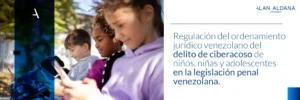The Code reaffirms that the communication power of the big screen is undisputed. Being there opens a door to connect with countless viewers. Documentary cinema also offers the possibility of showing a reality from different points of view, with the intention of making it visible and -in many cases- raising awareness about it.
Aware of these capabilities of the seventh art and with the motivation to expose the importance of the principle of universal jurisdiction, The Code wants to break into the big screen, with the help of the director, Carles Caparrós.
The time has come when the titanic work performed by the lawyers in charge of defending the victims of crimes committed against humanity must be clear and evident.
Through the experience of the Spanish judge Baltasar Garzónwho ordered the arrest of Chilean dictator Augusto Pinochet, the documentary describes the implications of the judicial processes carried out by hundreds of jurists around the world to determine responsibilities and punish those guilty of major economic, environmental, financial, political and war crimes that violate the rights of humanity.
Understanding major economic fraudsThe film, which is currently in search of sponsorship in order to reach movie theaters, aims to achieve the following goals: political arrests and damage to the natural heritage as crimes susceptible to determine responsible parties and legal actions.
At the firm Alan Aldana & Abogados We are doing our bit to support the crystallization of this project, which will undoubtedly highlight the value of universal jurisdiction and make it possible for more and more crimes against humanity to find justice. To join this cause, please check the official information here.
Safeguarding the integrity of the world
In its strict definition, universal jurisdiction is a "a legal principle that allows or requires a State to criminally prosecute certain crimes, regardless of the place where the crime was committed and regardless of the nationality of the perpetrator and the victim", according to the publication: The principles of universal jurisdiction and complementarity: its interconnection of the International Review of the Red Cross. This principle of law was established in the four Geneva Conventions of 1949.
Legal proceedings involving universal jurisdiction cases tend to be slow and complicated, as they have a different dynamic from that established in other litigation. In general, there are several parties involved, countless affected parties and, on top of that, political and economic interests that try not to be impacted.
However, it has not been impossible to achieve in some cases. The will, perseverance and ethics of several legal professionals in the world have been able to demonstrate that it is worthwhile not to let crimes of human rights violations go unpunished. The existence of these possibilities and real experiences opens the way to enforce the laws in the face of any such misconduct.

The Code, the documentary
Telling these stories through the magic of cinema sets a precedent and helps to promote this principle that could well be applied in numerous cases worldwide. It also helps to popularize its field of action and the factors involved, since most of the limitations encountered in its application are the lack of knowledge of its real objective and the mechanisms to enforce it.
The Code - in the words of its director, Carles Caparrós - seeks to collaborate with bringing the legal language and its possibilities closer to the majority. "It is a film about heroes, brave jurists and classic characters of film noir. Our team has been developing this project for three years now, convinced of its importance to publicize the work of legal activists."said Caparrós.
So far, the film production has managed to interview dozens of legal and human rights experts and has filmed in three countries, namely Argentina, Spain and Senegal: Argentina, Spain and Senegal. To cover the costs of shooting the documentary, a fundraising process has been initiated to pay for the post-production of image and sound, music licensing, translations, advertising and marketing. If the necessary financial resources are raised, The Code could be released by the end of 2017.
Sources consulted













